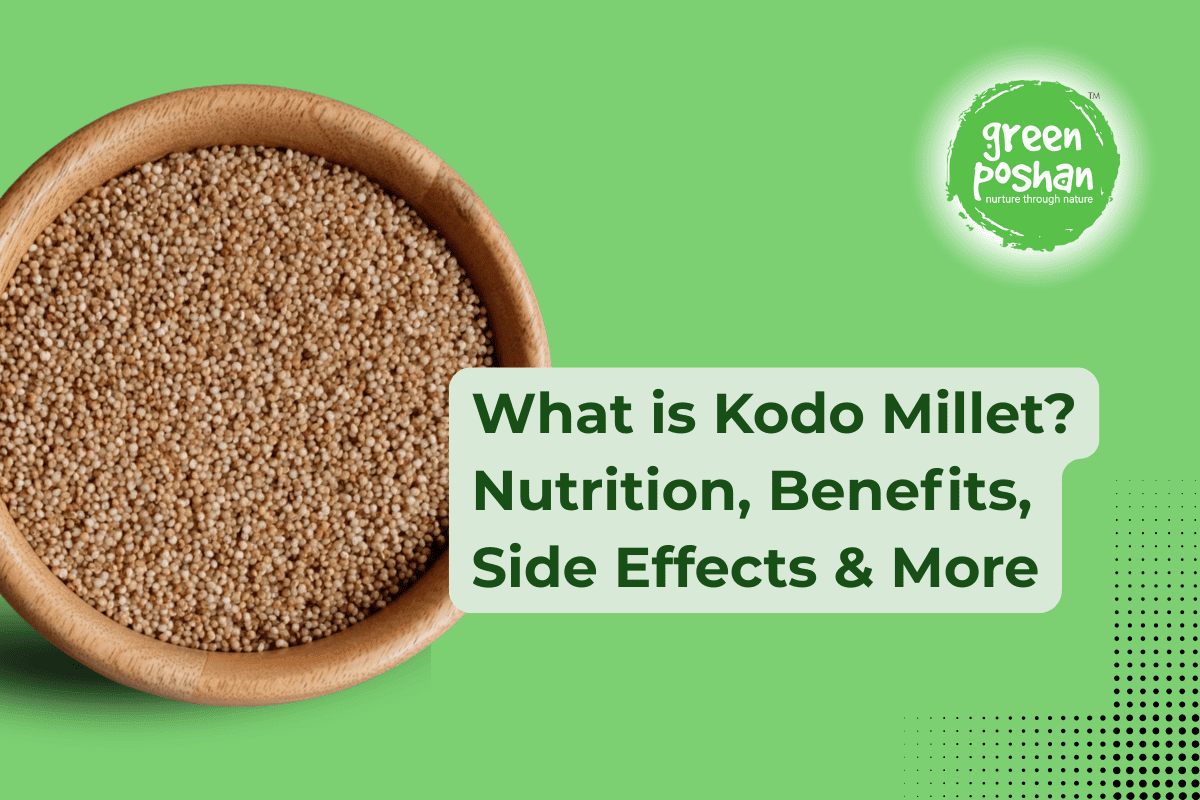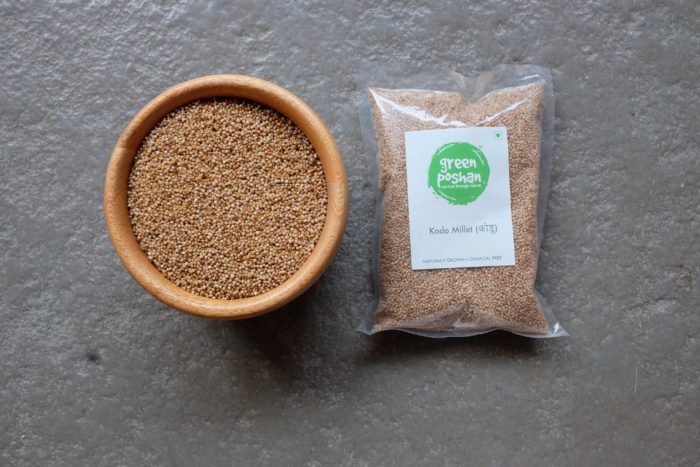In the quest for healthier dietary alternatives, ancient grains are making a significant comeback. Among them, Kodo Millet stands out for its impressive nutritional profile and adaptability. But what is Kodo Millet, and why is it garnering attention in health-conscious circles?
What is Kodo Millet?
Kodo Millet, scientifically known as Paspalum scrobiculatum, is a drought-resistant grain cultivated primarily in India, Nepal, and parts of Southeast Asia.
Known by various regional names—such as Varagu in Tamil, Arikelu in Telugu, and Kodra in Hindi—this millet has been a staple in traditional diets for centuries.
Its resilience to harsh climates and poor soils makes it a sustainable crop choice.
What is Kodo Millet?
Kodo Millet, scientifically known as Paspalum scrobiculatum, is a drought-resistant grain cultivated primarily in India, Nepal, and parts of Southeast Asia.
Known by various regional names—such as Varagu in Tamil, Arikelu in Telugu, and Kodra in Hindi—this millet has been a staple in traditional diets for centuries.
Its resilience to harsh climates and poor soils makes it a sustainable crop choice.
Kodo Millet — 250g
Kodo millet, a small, yellowish grain native to India, has long been a part of traditional diets in several states including Tamil Nadu, Madhya Pradesh, and Chhattisgarh. Known for its impressive nutritional value and easy digestibility, this grain has seen a resurgence in modern kitchens. Green Poshan brings to you high-quality 250g Kodo Millets, carefully sourced and packaged to deliver freshness and nutrition straight to your home.
Also known as Varagu in Tamil, Kodo millet is a smart substitute for rice and wheat. It’s rich in dietary fiber and essential minerals and is especially popular among people looking for healthier meal alternatives or following gluten-free diets. Whether you’re making khichdi, upma, porridge, or millet dosa, this versatile grain fits beautifully into various dishes.
Nutritional Profile of Kodo Millet
Per 100 grams, Kodo Millet offers:
- Calories: 302 kcal
- Protein: 11g
- Carbohydrates: 59g
- Dietary Fiber: 10g
- Fat: 4.2g
- Calcium: 27mg
- Iron: 0.5mg
- Potassium: 108mg
This nutrient-dense grain is particularly rich in dietary fiber and protein, making it a valuable addition to balanced diets.
Health Benefits of Kodo Millet
1. Supports Kidney Health
Kodo Millet’s low potassium content and high fiber levels make it beneficial for individuals with kidney disorders.
Its antioxidants aid in blood purification and may help prevent kidney and gallbladder stone formation.
2. Aids in Diabetes Management
With a low glycemic index, Kodo Millet helps regulate blood sugar levels, making it suitable for diabetics. Its high fiber content slows glucose absorption, preventing spikes in blood sugar.
3. Promotes Heart Health
The grain’s rich antioxidant profile combats oxidative stress, reducing the risk of cardiovascular diseases. Additionally, its fiber content helps lower LDL cholesterol levels.
4. Assists in Weight Management
High in dietary fiber, Kodo Millet promotes satiety, reducing overall calorie intake. Its complex carbohydrates provide sustained energy, aiding in weight control.
Potential Side Effects of Kodo Millet
While Kodo Millet offers numerous health benefits, it’s essential to be aware of potential side effects:
1. Allergic Reactions
Some individuals may experience allergic reactions, including skin rashes, itching, or respiratory issues, upon consuming Kodo Millet.
Such reactions are rare but warrant caution.
2. Digestive Discomfort
Due to its high fiber content, excessive consumption can lead to bloating or gas, especially in individuals unaccustomed to high-fiber diets. Gradual introduction is recommended.
3. Interference with Thyroid Function
Millets contain goitrogens, which can interfere with thyroid hormone production.
Individuals with thyroid disorders should consume Kodo Millet in moderation.
Kodo Millet vs. Little Millet: A Comparative Overview
Kodo Millet:
- Scientific Name: Paspalum scrobiculatum
- Protein: 11g per 100g
- Fiber: 10g per 100g
- Notable Benefits: Kidney health, diabetes management
- Potential Kodo Millet Side Effects: Allergic reactions, digestive discomfort
Little Millet:
- Scientific Name: Panicum sumatrense
- Protein: 7.7g per 100g
- Fiber: 7.6g per 100g
- Notable Benefits: Digestive health, energy provision
- Potential Little Millet Side Effects: May interfere with thyroid function if consumed excessively
Both millets are nutritious, but Kodo Millet offers higher protein and fiber content, making it slightly more beneficial for specific health goals.
Culinary Uses of Kodo Millet
Kodo Millet’s versatility allows it to be incorporated into various dishes:
- Kodo Millet Upma: A savory breakfast option with vegetables and spices.
- Kodo Millet Pulao: A wholesome one-pot meal with mixed vegetables.
- Kodo Millet Dosa: A fermented pancake alternative to traditional rice dosas.
- Kodo Millet Kheer: A sweet dessert made with milk and jaggery.
Its neutral taste makes it adaptable to both savory and sweet preparations.
Wrapping Up
Kodo Millet emerges as a nutrient-rich grain with multiple health benefits, including support for kidney health, blood sugar regulation, and heart health.
However, like all foods, it should be consumed in moderation, especially by individuals with specific health conditions.
Ready to embrace the benefits of Kodo Millet? Explore our range of millet-based products and recipes to incorporate this supergrain into your diet today!


